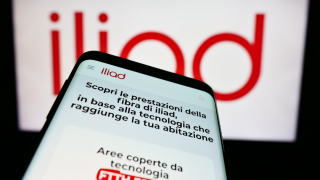According to Reuters, the consortium comprised of the CEOs of Deutsche Telekom, Orange. Telefonica, Bouygues Telecom, KPN, BT Group, TIM Group, Telia Company, Fastweb and Altice Portugal, said:
"Costs of planning and construction works are increasing. Prices for fibre optic cables, for example, have almost doubled in the first semester 2022. Similarly, the hikes in energy prices and in the prices of other inputs are also hitting the connectivity sector."
The annual costs in network infrastructure amounts to approximately €50 billion ($48.5 billion) and new technologies and use cases continue to develop, requires urgent funding.
"Timely action is a must: Europe missed out on many of the opportunities offered by the consumer internet. It must now swiftly build strength for the age of the metaverses," the CEO's added.
"For this to happen, and to be sustainable over time, we believe that the largest traffic generators should make a fair contribution to the sizeable costs they currently impose on European networks."
Big Tech, also known as the Tech Giants or the Big Five, is made up of Amazon, Apple, Alphabet, Microsoft and Meta, though some definitions include the likes of Netflix, Twitter, Snap, Salesforce, Oracle, and Uber.
In the case of Alphabet's Google, Meta and Netflix, the consortium says they account for more than half of internet traffic in Europe and should assume some of the cost of upgrading infrastructure.
This has been rebuffed by Big Tech who argue that they already invest in equipment and technologies to deliver content more efficiently.
Many of the Big Tech companies already invest in their own infrastructure with the likes of Meta, Google and Amazon, spending on network infrastructure, specifically data centres and international subsea cables. Examples include Google's Equiano subsea cable that runs from Portugal to South Africa, Amazon Web Services plans on building two new data centres in North Dublin, and Meta has announced plans for significant infrastructure and people investment in Spain.
The news comes as the European Commission gathers feedback from both telcos and Big Tech, before embarking on a legislative proposal that could mandate tech companies help pay for the roll-out of 5G and fibre cables across the European Union.






